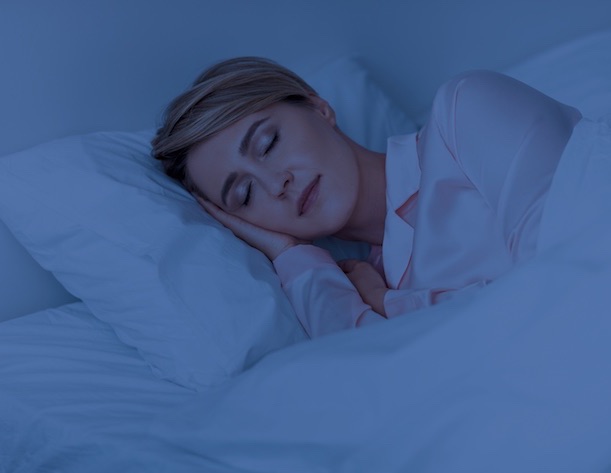Scientific studies show that we are far more creative and productive when we are well rested. Indeed,… more


Sleep may sound like an unimportant things to do, perhaps that's why people try to sneak hours off their sleep time to do ‘more important’ things. But in reality, sleep is like a thread that binds body with health. It may sound surprising to some but a good health cannot be achieved with lack of sleep.
Sleep is a state of keeping your body at rest and reviving it by keeping the voluntary movement minimal. While sleeping, we appear to be inactive but our core brain and body functions remain active.
From the moment we fall asleep till the time we wake up, the intensity of sleep varies. A sleep cycle has 4 stages. The first stage is when we are drowsy and not really asleep, it lasts about 5 to 10 minutes. In the second stage, called light sleep, our eyes stops moving and brain slows down. Slowly we move towards the third and fourth stages of moderate and deep sleep, respectively. During these stages a person may not wake up due to small disturbances around them.
Sleep is important for rejuvenating our body and mind by giving them a break from the hustle and bustle of daily life. Sleep offers us respite from both physical and mental activities. It recharges and prepares us for the next day. Since the body functions slow down during sleep, it conserves a lot of energy, saving it for the time you wake up. Hence, sleep helps improve our performance and increases productivity.
When you are sleeping less it makes you feel dozy and you find it hard to concentrate on things around you. Moreover, since sleep rejuvenates the brain and have effects on our emotional behavior, lack of sleep can also have adverse effects on brain function and leave you feeling cranky and even cause hallucinations in the long term. Sleeping less may also impact physical performance, especially for people working in sports and other high-intensity environments. When you are sleeping, the body starts the repair work on muscle tissues and injuries.
So, sleeping soundly not only keeps us rejuvenated but also helps keep several physical and mental health issues away.
Before digging deeper into the benefits of sleep, let's understand the relationship between quality and quantity of a good sleep. But how do you measure the quality of sleep? Sleep quality is judged based on following points, duration taken to fall asleep, times you wake up while sleeping, and wakefulness, that is the duration you stay awake after first falling asleep. The last measure is sleep efficiency, which measure the duration of deep sleep you have had.
‘Sleep like a baby’ is the perfect phrase to describe the ideal quality of sleep. A good quality sleep should be deep, sound and without any disturbances. If you fall asleep within half an hour of lying down, have longer duration of deep sleep stage and wake up as less as once after sleeping, it's characterized as a good sleep. Last but not the least is the duration, the longer the quantity of good sleep the better it is for you.

The right amount of sleep is also necessary. In a way quantity of sleep depends on the quality as well. If you are getting sound sleep, you may sleep for longer. But sometimes deep sleep happens when you are too tired from working and being sleep deprived and then wake up again, that's not good. At least 7 to 9 hours of daily sleep is required to rejuvenate you fully and up your activity levels.

Striking a balance between the two aspects of sleep will bring the most benefits for you. While you will routinely need a good amount of sound sleep, you can discount that with small naps or smaller bouts of sleep when enjoying a holiday or just in case, working a deadline. However, making sleeping less a habit is not good for your physical and mental wellbeing.

A sound siesta is as important as a balanced diet for holistic health of your body and mind. And scientific evidence backs the impact lack of good sleep has on your overall health and wellbeing.
Underlying health problems can also impact your sleep, affecting its quality and quantity. Research indicates that several lifestyle and age-related diseases can affect the soundness of your sleep.
A sleep disorder that causes other sleep disorders, Sleep Apnea is when your breathing starts and stops repeatedly. This may lead to snoring and unsatisfied nights' sleep.
People with asthma may face shortness of breath, cough, wheezing and tightness in chest during the night. This will either keep them up all night or deny a sound deep sleep.
Diabetic patients who have unstable blood sugar levels often stay awake due to the symptoms. Other associated symptoms like diabetic foot discomfort, excessive urge to urinate, increased thirst, tiredness, etc. may also obstruct their sleeping pattern.
Heart diseases can keep you from having deep sleep due to chest discomfort, stress & anxiety. Also, a weakened heart may not pump blood as efficiently and fluid may build up in lungs while laying on bed making it difficult to breathe and fall asleep.
Symptoms that accompany cancer, like inflammation, tiredness, hot flashes, and pain disrupt night sleep. Also, day time fatigue may cause sleepiness during the day and keep people up at night. Some cancer medications and treatments may also contribute to insomnia.
Gastroesophageal Reflex Disease and other gastrointestinal disorders tend to cause symptoms that affect sleep. The night-time discomfort and acid reflux may cause insomnia, sleep apnea, and daytime sleepiness.
Parkinson’s disease is directly related to REM sleep disorder. The common symptoms of this disease, like tremors and stiff muscles may make it unbearable for the patient to lay down and fall asleep.
All forms of dementia including Alzheimer’s disease can cause unrest and sleepless nights. This is known as the ‘sundown syndrome’. Affected persons may feel restless, panic, anxiety or aggressiveness and fail to sleep soundly.
Most of the times a troubled mind is the reason behind lack of sleep. Especially people who suffer from mental illnesses like depression, anxiety, bi-polar disorder, or OCD (Obsessive Compulsive Disorder) are most likely to have trouble sleeping.
Chronic pains associated with conditions like arthritis, gout, herniated disc, sciatic pain, migraine, or cancer can make bedtime uncomfortable. These excruciating pains do not wear off easily and may keep you sleep deprived for a number of days.
For acute conditions like insomnia you may have to consult a doctor. But before doing that, you can try taking help from a health coach for sleep support or try these natural ways for improving your sleep quality and quantity. Because it's always better to avoid sleep medications, as they come with their own set of repercussions.
Most people shy away from sleep therapy because they either think it can be figured out on their own or believe it to be a personal issue. This may often lead to medication which is not the long-term and holistic answer.
It’s always better to ask for help. Most sleep problems are caused by thoughts, behavior, and lifestyle choices. If you are feeling sleep deprived, consult with your doctor first and take recommended tests to rule out underlying medical issues. If there are no obvious medical issues behind your sleeping woes, then consider reaching out to a health and wellness coach who provides sleep coaching for adults.
A coach gets to know you before creating a custom sleep strategy that addresses your specific challenges and motivates you towards a healthier sleeping pattern. Coaching for sleep support allows you to,




Scientific studies show that we are far more creative and productive when we are well rested. Indeed,… more

Fast paced life and with ever increasing work demand it’s almost right to say that most individuals struggle… more